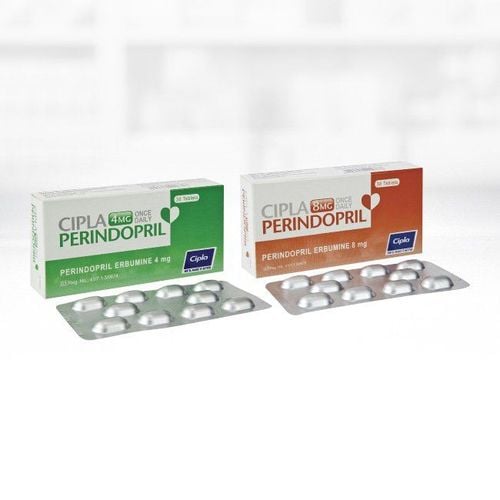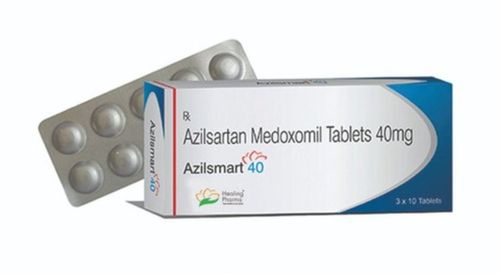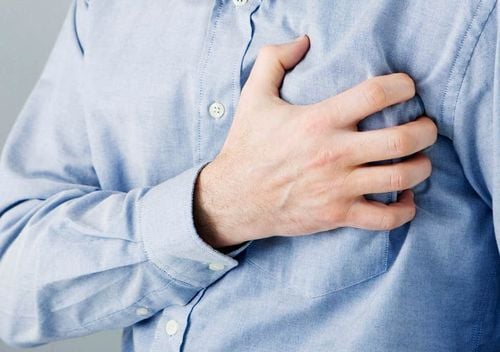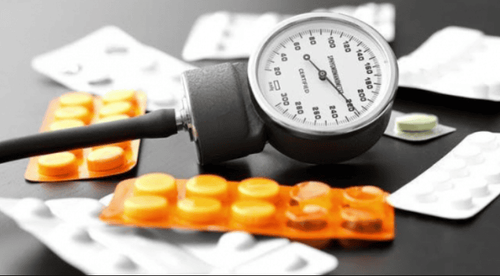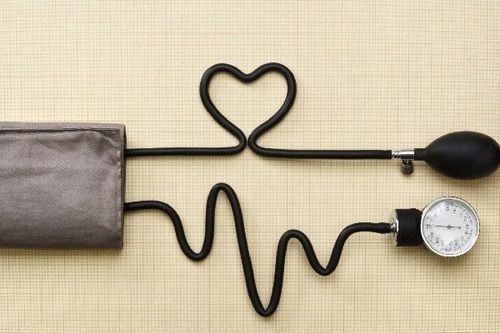This is an automatically translated article.
The article was professionally consulted with Master, Doctor Nguyen Minh Son - Interventional Cardiologist - Department of Medical Examination & Internal Medicine - Vinmec Nha Trang International General Hospital.Aging blood vessels leading to hypertension in the elderly is a leading cause of cardiovascular disease and death. Reducing blood pressure is effective in reducing cardiovascular risk and is safe in the elderly. Controlling blood pressure in the elderly is challenging because of many underlying diseases and illnesses. The choice of treatment method is not simple and needs to be personalized to improve health and increase quality of life.
1. What is the burden and mechanism of hypertension in the elderly?
Vascular aging is associated with endothelial dysfunction and vascular remodeling. This process leads to an increase in arterial stiffness and isolated systolic hypertension, the most prevalent form of hypertension in the elderly.Hypertension is not a benign age-related phenomenon and is a leading cause of preventable cardiovascular morbidity and mortality. Hypertension in the elderly continues to increase significantly, accounting for 8.5% of the world population, and this proportion is expected to reach about 17% by 2050. Therefore, appropriate management of hypertension in high-risk populations is very important.
2. When to start treatment for hypertension in the elderly?
Recent guidelines recommend initiating medication for the treatment of hypertension in the elderly with blood pressure higher than 130/80 mmHg. This recommendation is based on several trials of antihypertensive drugs in the elderly with large patient populations. In these trials, morbidity and mortality were significantly reduced during the treatment of hypertension in the elderly with different blood pressure targets, even when the systolic blood pressure goal was lower. 120 mmHg. In addition, the risk of adverse events due to adverse events including orthostatic hypotension or falls was not increased.Another important consideration is to start treating hypertension in the elderly with two drugs. These individuals should be carefully monitored for postural hypotension and a history of falls. Blood pressure should be measured both while sitting and standing. Older adults may experience orthostatic hypotension. This is especially common in neurodegenerative diseases such as Parkinson's disease and therefore should be taken into account.

Huyết áp ở người cao tuổi có thể cần điều trị khi xuất hiện bất thường
3. How to treat hypertension in the elderly?
3.1 Treatment of hypertension in the elderly without medication Non-pharmacological lifestyle interventions are recommended as preventive care and as adjunctive therapy for the treatment of hypertension in the elderly:
Maintain a healthy weight. Overweight - obesity is one of the common causes of high blood pressure in the elderly. See a dietitian or doctor for advice on your optimal weight, based on your height, gender, fitness, and age. Application of the DASH diet for hypertension in the elderly. This diet recommends reducing sodium intake, supplementing with potassium, calcium or magnesium. Eat more fruits and vegetables, low-fat dairy products, limit red meat and increase portions of fish, poultry and nuts. Reducing saturated fat, trans fat and cholesterol in the diet supports the treatment of hypertension in the elderly. Aging reduces muscle endurance and strength, and at least 150 minutes of moderate-intensity aerobic activity or 75 minutes of vigorous-intensity aerobic activity is recommended to aid in the treatment of hypertension in the elderly. Older adults with hypertension of any type of exercise should consult a doctor or specialist, gradually increasing the intensity and duration of each type of exercise. High blood pressure in the elderly has a higher risk if you have a habit of smoking. Quitting smoking and quitting not only improves overall health, but also reduces the risk of high blood pressure. Limit the use of alcohol, beer and alcoholic beverages. You should talk to your doctor about how much alcohol your body can tolerate and the potential for interactions with medications for high blood pressure in the elderly. The elderly are more likely to have sleep disturbances, which is also a risk factor for hypertension in the elderly. Not drinking alcohol or stimulants (caffeine) before bed and keeping the bedroom space comfortable can help improve your ability to fall asleep.
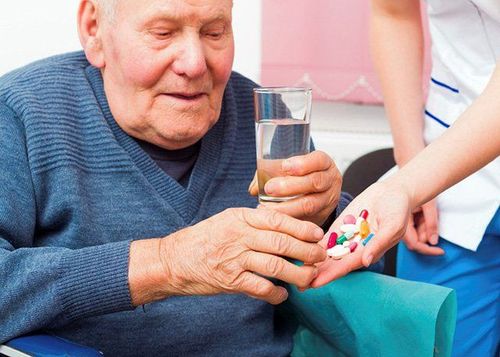
Điều trị tăng huyết áp ở người cao tuổi có thể không cần sử dụng thuốc
3.2. Treatment of hypertension in the elderly with medication When medication is needed to manage hypertension in the elderly that cannot be controlled by lifestyle modifications, several factors should be considered before selecting a medication including go with. These factors include the patient's general health status, adherence to treatment, ability to provide supportive care from loved ones, electrolyte balance, and kidney function.
Thiazide diuretics, ACE inhibitors (ACEIs), angiotensin II receptor blockers (ARBs), and calcium channel blockers (CCBs), have all shown cardiovascular benefits in elderly patients. Unless clinically indicated due to comorbidities, beta-blockers should not be used as first-line agents because they may exacerbate cardiovascular events in individuals over 60 years of age. Loop diuretics and alpha blockers should also be avoided because of their association with falls. If hypertension is present in the elderly without underlying disease, calcium channel blockers or diuretics are recommended. If hypertension in the elderly remains uncontrolled on monotherapy, a combination of different agents is required to achieve adequate blood pressure control. Any of the first four high blood pressure drugs can be combined, however based on multiple studies renin-angiotensin-aldosterone system inhibitors (RAAS) and calcium channel blockers (CCBs) /thiazide is the preferred combination. Initiation of any antihypertensive drug in the elderly should be done with assessment of orthostatic hypotension and dose titration according to patient response. Renal function should be assessed to detect possible increases in serum creatinine and decreased glomerular filtration rate due to blood pressure-related renal hypoperfusion. Hypokalemia is also an important side effect of diuretics that should be monitored.
Elderly people with high blood pressure should have regular health check-ups to ensure stable blood pressure, detect possible risks early and eliminate it. In addition, the treatment of hypertension in the elderly should be coordinated with the medical team by monitoring blood pressure at home with a personal blood pressure monitor. You can refer to the tips above and choose the best methods to prevent and treat high blood pressure for yourself or a loved one.
Periodic health check-up is one of the ways to early recognize and prevent disease, from which to have a treatment plan to achieve optimal results. Currently, Vinmec International General Hospital has general health checkup packages suitable for each age, gender and individual needs of customers with a reasonable price policy, including:
Health checkup package general Vip Special general health checkup package Standard general health checkup package Patient's examination results will be returned to your home. After receiving the results of the general health examination, if you detect diseases that require intensive examination and treatment, you can use services from other specialties right at the Hospital with quality treatment and services. outstanding customer service.
Please dial HOTLINE for more information or register for an appointment HERE. Download MyVinmec app to make appointments faster and to manage your bookings easily.




